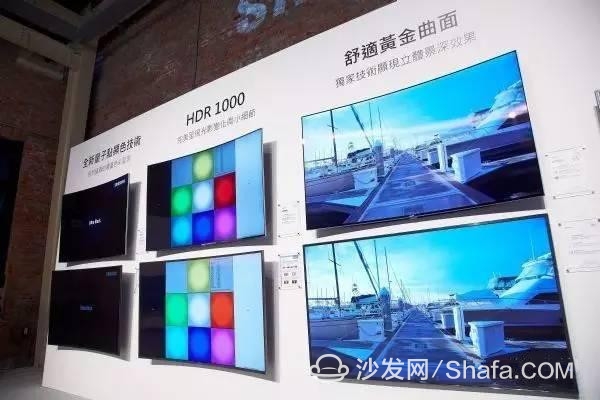
Samsung Electronics' QLEDs attacked the high-end TV market and faced up with LG Electronics' OLED TVs, making quantum dot technology highly valued by the industry. Nanoco, a cadmium-free quantum dot and nanomaterials plant, pointed out that currently mainland and Taiwanese panel makers are rapidly integrating quantum dot technology into their panel products. Due to the fast adoption speed, it is expected that they will soon be able to align with Korean manufacturers.
In an interview, Nanoco Chief Operating Officer Keith Wiggins stated that as Samsung launched the SUHD TV series with Cadmium-free quantum dots technology in March 2015, it became the fastest growing high-color-resolution TV in the European market.
According to Nanoco’s internal estimates, the sales volume of this product surpasses other high-end TV products (including cadmium-containing products), and the sales ratio is approximately 20:1, which is mainly due to the toxic risk of cadmium in quantum dots in the past, resulting in products in Europe. Insufficient market sales and excellent color performance and energy efficiency offered by today's cadmium-free quantum dots have all met or exceeded the highest standards in the industry.
Although the OLED TV camp still has doubts about the performance of quantum dot technology, Keith Wiggins further pointed out that only a few companies currently mass-produce and sell OLED TVs. Since the production and cost of large-size OLED panels are still unresolved, quantum dots allow The reasons why liquid crystal displays surpass OLED TVs in terms of color performance are high brightness and energy efficiency. They also allow LCD manufacturers to use existing manufacturing infrastructures and are even lower in cost than OLED TVs.
Keith Wiggins pointed out that based on the confidentiality agreement, it is inconvenient to comment on the mass production progress of brand customers, but quantum dot TV products with Nanoco technology will be on sale in 2016, and it is expected that the market for cadmium-free quantum dot displays will develop rapidly in the next year. Including the mainland, Taiwan industry has been the integration of quantum dot panel technology, is expected to soon be able to keep pace with the Korean panel makers.
Nanoco also questioned that the European Commission’s Directorate-General for Environment (DG Environment), which is responsible for formulating environmental policies for the European Union, commissioned a recent report from the German Institute of Ecology, which recommended that the European Union extend the "RoHS Directive on Electron-Electronic Equipment (RoHS). The exemption period for using cadmium quantum dots in TVs and displays.
Cadmium is one of the six highly toxic substances that are banned from electrical electronics in the RoHS Directive. The RoHS directive also defines cadmium as the most dangerous toxic heavy metal. Nanoco believes that there are many controversies in the recommendations of the German Ecological Institute, especially the report. No mention was made of the RoHS exemption period when the color gamut increases or how much energy is reduced.
There are cadmium-free products on the market that can replace the existing technologies, so the criticism of the report by Nanoco will lead to confusion and call for the EU Executive Committee to terminate the use of cadmium compounds as soon as possible.
Smart TV/box information can focus on smart TV information network sofa butler (http://), China's influential TV box and smart TV website, providing information, communication, TV boxes, smart TVs, smart TV software, etc. Answering questions.